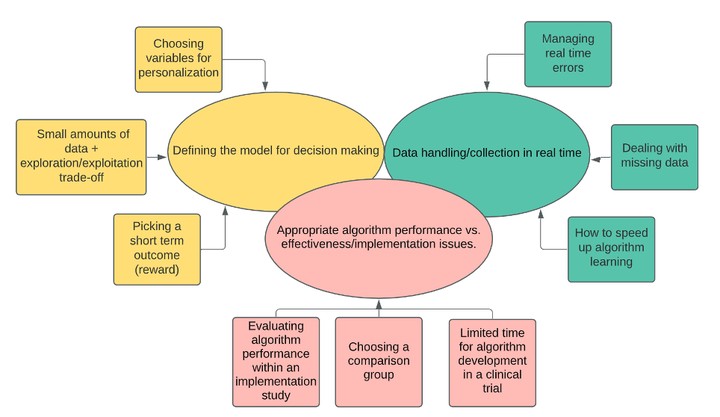Adaptive learning algorithms to optimize mobile applications for behavioral health: guidelines for design decisions
 Image credit: Unsplash
Image credit: Unsplash
Abstract
Providing behavioral health interventions via smartphones allows these interventions to be adapted to the changing behavior, preferences, and needs of individuals. This can be achieved through reinforcement learning (RL), a sub-area of machine learning. However, many challenges could affect the effectiveness of these algorithms in the real world. We provide guidelines for decision-making. Using thematic analysis, we describe challenges, considerations, and solutions for algorithm design decisions in a collaboration between health services researchers, clinicians, and data scientists. We use the design process of an RL algorithm for a mobile health study “DIAMANTE” for increasing physical activity in underserved patients with diabetes and depression. Over the 1.5-year project, we kept track of the research process using collaborative cloud Google Documents, Whatsapp messenger, and video teleconferencing. We discussed, categorized, and coded critical challenges. We grouped challenges to create thematic topic process domains. Nine challenges emerged, which we divided into 3 major themes, i.e., 1. Choosing the model for decision-making, including appropriate contextual and reward variables; 2. Data handling/collection, such as how to deal with missing or incorrect data in real-time; 3. Weighing the algorithm performance vs effectiveness/implementation in real-world settings. The creation of effective behavioral health interventions does not depend only on final algorithm performance. Many decisions in the real world are necessary to formulate the design of problem parameters to which an algorithm is applied. Researchers must document and evaulate these considerations and decisions before and during the intervention period, to increase transparency, accountability, and reproducibility. Find the full eprint at the following link.